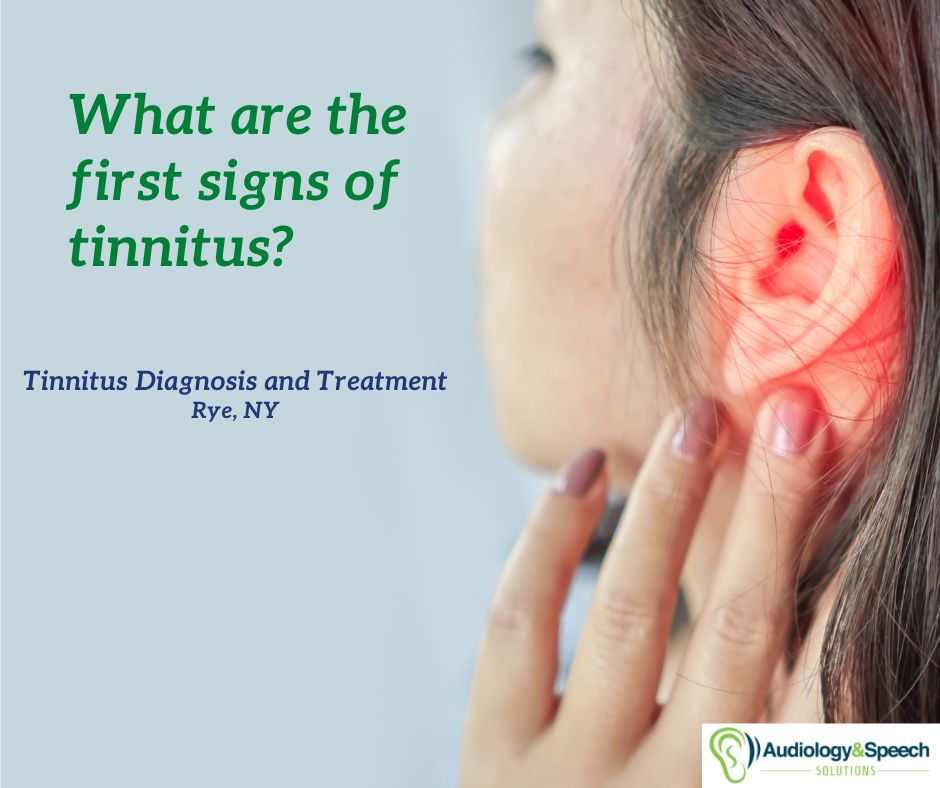Tinnitus affects approximately 25 million Americans, and in some scenarios, it can be so severe that it interferes with daily activities. People suffering from severe tinnitus may struggle to hear, work, or sleep. Being aware of the first signs of tinnitus can help you better assess your situation and seek professional help.
Have your ears been ringing lately? Hearing noises that have no external source is a common symptom of tinnitus. Aside from ringing in the ears, tinnitus may also manifest as buzzing, whooshing, humming, or pulsating sounds.
Tinnitus aurium is usually described as a ringing, hissing, roaring, or whooshing sound in one or both ears. Tinnitus that gives the perception of being in or coming from the head is referred to as tinnitus cranii.
The sound varies in pitch from low to high and can manifest as a single tone, noise-like, multi-tonal, or with no tonal character.
What is the most common cause of tinnitus?
The most common cause of tinnitus is long-term exposure to loud sounds. Noise-induced hearing loss affects up to 90% of individuals with tinnitus.
The noise irreparably damages the cochlea (located in the inner ear), which contains sound-sensitive cells.
The link between the ears and the brain
Although tinnitus is first experienced through the ears, its true source is in the networks of brain cells (known as neural circuits) that process the sounds our ears hear. So, while tinnitus may commonly be an ear issue, its repercussions continue to the brain.
What happens if tinnitus is left untreated?
Tinnitus, like many other hearing-related conditions, can have an influence on your quality of life. Many people with tinnitus report difficulty concentrating, sleeping, and performing everyday tasks. Tinnitus can wreak havoc on your life if left untreated. It may cause stress, irritability, insomnia, and even anxiety.
Some individuals who have severe tinnitus find themselves withdrawing from social activities because they are worried that they’ll have an unexpected tinnitus episode.
Tinnitus is greatly unpredictable – some days may be louder or quieter than others.
A quiet ambiance may trigger tinnitus and give the perception that tinnitus is louder than it actually is.
One of the best ways to handle tinnitus is by working with a dependable audiologist specializing in tinnitus. There are several methods to address tinnitus, and these methods are highly personalized depending on your symptoms.
Can a brain scan show tinnitus?
An MRI scan may indicate a mass or tumor near the eighth cranial nerve or the ear, which could be the source of the tinnitus. Imaging studies can also help in determining the cause of pulsatile tinnitus.
The images can detect changes in blood vessels around the ears and assess whether symptoms are caused by an underlying medical issue.
How is tinnitus treated?
There’s no exact drug or therapy to treat tinnitus. Several approaches may be put in place which may include –
- Hearing aids with tinnitus maskers
- White noise generators
- Portable sound maskers
- Relaxation and meditation
- Counseling
- Sound therapy
- Medications (to address insomnia, stress, or anxiety caused by tinnitus)
Tinnitus treatments may be a combination of traditional and modern strategies.
When should I see a doctor for tinnitus?
Determining the cause of tinnitus is key in coming up with the appropriate tinnitus solution. If you are experiencing any of the following tinnitus symptoms below, you should see an audiologist as soon as you can:
- Tinnitus in one ear
- When the sounds are making it difficult for you to hear or concentrate
- When the sound suddenly changes in duration or volume
- When tinnitus is accompanied by dizziness or hearing loss
- When tinnitus seems to be pulsating (like a heartbeat)
Tinnitus Evaluations in Rye, NY
Are you experiencing first signs of tinnitus? Seek professional help right away!
Audiology and Speech Solutions offers tinnitus evaluations in Rye, NY. Contact us today to schedule an appointment!

